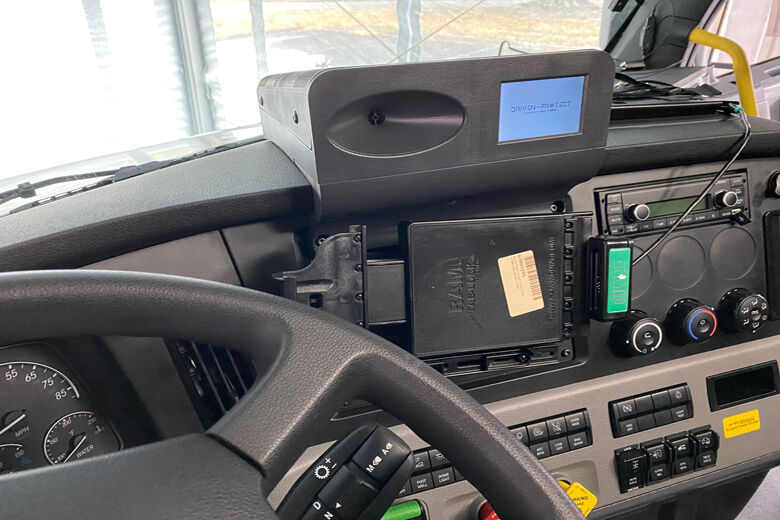
Virginia’s Department of Motor Vehicles is spearheading the largest commercial test of technology that prevents a vehicle from moving forward if it detects the driver has had too much to drink.
The Driver Alcohol Detection System for Safety program is a public-private partnership aiming to develop technology that “will take the guesswork out of blood alcohol measurement by letting the driver quickly, easily, and reliably know if they are at or above the legal limit,” said Virginia DMV Commissioner Rick Holcomb.
The technology uses sensors installed near the steering wheel.
“It will unobtrusively measure the driver’s blood alcohol level,” said Holcomb. “And, if they provide a BAC level that is above the legal limit, the vehicle will not move forward.”
The Schneider trucking and transportation company will outfit eight of its cabs with the latest breath sensors, which will likely provide data from almost a million miles of truck travel during 2022.
“The system measures the alcohol of the driver’s natural exhaled breath, and our professional drivers have said it’s fast and unobtrusive,” said Tom DeSalvi, Schneider’s vice president of safety, driver training and compliance. “We know they will embrace the DADSS technology, because they will be part of a solution that will help save lives in the future.
In the 1980s, Schneider implemented speed limiters, and has been an early adopter of other safety technology, such as stability control systems, electronic logging devices, collision mitigation systems and forward- and side-mounted video cameras.
The new testing will expand Virginia DMV’s partnership with Virginia-based James River Transportation, which was the first company to test the technology with light passenger vehicles.
In a news conference at DMV headquarters in Richmond, involving the Automotive Coalition for Traffic Safety, Holcomb said the new technology will be available to be integrated for all commercial fleets later this year.
“According to a study from the Insurance Institute for Highway Safety, equipping all vehicles with such an alcohol detection system could prevent more than a quarter of fatalities on U.S. highways, and save more than 9,000 lives each year,” said Holcomb.
Last year, Virginia alone reported 6,624 alcohol-related crashes, 272 alcohol-related fatalities and 3,386 alcohol-related injuries on its roadways.








